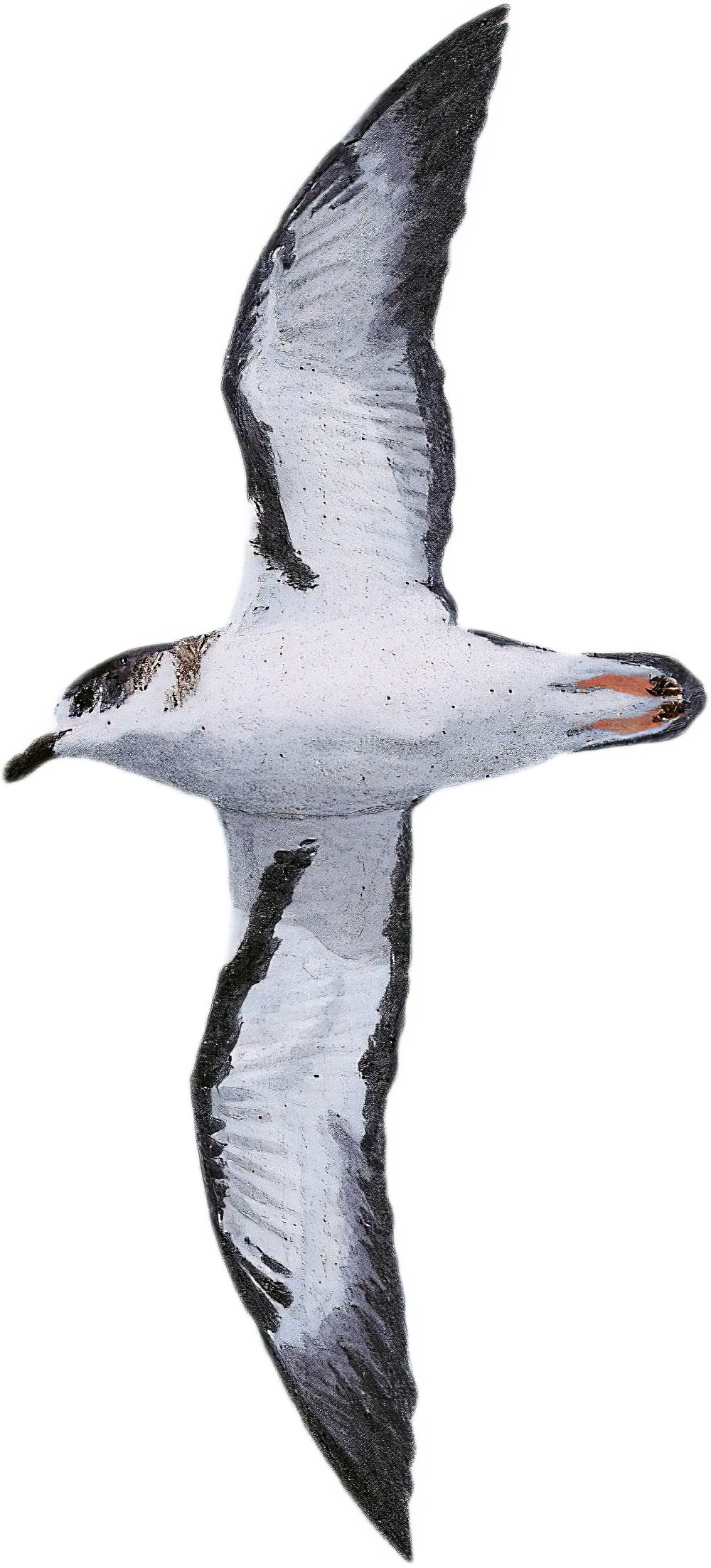Bermuda Petrel / Pterodroma cahow

Bermuda Petrel
SCI Name:
Protonym: Aestrelata cahow Auk 33 p.194
Taxonomy: Procellariiformes / Procellariidae / Pterodroma
Taxonomy Code: berpet
Type Locality: southeastern side of Castle Island, Bermuda.
Author: Nichols & Mowbray
Publish Year: 1916
IUCN Status: Endangered
DEFINITIONS
PTERODROMA
(Procellariidae; Ϯ Great-winged Petrel P. macroptera) Gr. πτερον pteron wing; -δρομος -dromos -racer, -runner < τρεχω trekhō to run; the gadfly petrels were so named with reference to their fast weaving flight, as if pursued by horseflies; "1. FULMAREÆ. ... *4. Pterodroma, Bp. 14. fuliginosa, Banks. (grisea, Kuhl nec Gm. lugens? Soland. atlantica, Gould.) 15. macroptera, Smith. (brevirostris, Less.) 16. aterrima, Verr. (carbonaria? Solander.)" (Bonaparte 1856); "Pterodroma, Bp. (Thalassoica? p. Gr. - Procellaria, p. Hombr. et Jacq. - Ossifraga, p. Reich.) Rostrum brevissimum, curvum, valde compressum: cauda cuneata. Nigrae. Cum genere BULWERIA Procellariearum analogiam praebent. Parvulae inter congeneres conveniunt quippe statura cum gigantibus illis propriae sectionis. M. ant. pr. Afr. 3. 1. PROCELLARIA macroptera, Smith. ... 2. PROCELLARIA FULIGINOSA, Banks, nec Lath. ... *3. PROCELLARIA aterrima, Verr." (Bonaparte 1857); "Pterodroma Bonaparte, Comp. Rend. Acad. Sci. Paris, 42, 1856, p. 768. Type, by subsequent designation, Procellaria macroptera A. Smith (Coues, Proc. Acad. Nat. Sci. Phila., 1866, p. 137)." (Peters 1931, I, 60).
Var. Petrodroma, Pterodrome.
Synon. Aestrelata, Cookilaria, Hallstroma, Oestrelatella, Proaestrelata, Rhantistes.
cahow
The Cahow Petrel was named Cahow or Cowhaw by the early (17th century) colonists of Bermuda, in imitation of its cries;"Æstrelata cahow sp. nov. The type specimen, a mounted bird, Coll. Bermuda Museum of Natural History, was taken by Mr Mowbray, Feb. 22, 1906, in a rock crevice, about 20 feet above high water, Southeast side of Castle Island. ... The name "cahow" was used by early settlers in Bermuda for an Æstrelata abundant at Cooper's Island, a mile at the most from where the type was taken and presumably of the same species. Numerous partially fossil bones (including skulls) which, after comparison, we believe to belong to the form here described have been found by Mr Mowbray in various caves in the eastern end of the Bermudas, some about a half mile from where the bird was taken" (Nichols & Mowbray 1916) (Pterodroma).
UPPERCASE: current genus
Uppercase first letter: generic synonym
● and ● See: generic homonyms
lowercase: species and subspecies
●: early names, variants, mispellings
‡: extinct
†: type species
Gr.: ancient Greek
L.: Latin
<: derived from
syn: synonym of
/: separates historical and modern geographic names
ex: based on
TL: type locality
OD: original diagnosis (genus) or original description (species)












